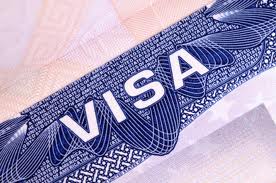Immigration News & Updates eNewsletter
eNewsletter
RESOURCES TO ASSIST READERS IN UNDERSTANDING IMMIGRATION ISSUES
Learn More About:
Immigration News & Updates eNewsletter © 2011 - 2015
For questions about U.S. Residency, Green Cards and Immigration Visas, Visit our Website at: www.ImmigrateToday.com or call our office at: (954) 382-5378
I Want To Live In The U.S. -
Understanding More About Immigrant and Non-Immigrant Visas
There are a few ways for foreign nationals to be able to live in the U.S., some are temporary and some are permanent. Permanent Residency in the U.S. often called a “Green Card” can be obtained either through family sponsorship, through a financial investment or through sponsorship by an employer.
So when a foreign national wishes to stay or immigrate to the U.S., they first need to determine if they meet any of the criteria to be able to do so. Here are the most common Immigration Categories:
If they have qualifying family members in the U.S. other than a U.S. Citizen Spouse or adult child, they need to determine if the family member’s relationship to them qualifies under U.S. Immigration law for sponsorship. U.S. Citizen family members can sponsor their spouse, parent, minor and adult, singe and married children and siblings (brothers & sisters). U.S. Residents can sponsor their spouse, minor children and adult single children. No other family relationship qualifies for sponsorship. For instance, a grandparent cannot directly sponsor their grandchildren. In order to do so, the grandparent would need to sponsor the grandchild’s parent (the grandparents own child) and then the grandchild can immigrate along with their parent, as long as the child is under age 21 at the time the parent is eligible to immigrate.
If no qualifying family relationship exists, the next step is to determine eligibility for direct U.S. Residency through a substantial financial investment (approx $500,000) in the U.S. in a business or investment “regional center”, or whether the foreign national possesses the equivalent of an advanced degree which may qualify for immigration through a U.S. employer. In such cases the foreign national must have a qualifying U.S. company willing and able to sponsor them through the employment-based immigration process. Individuals with extraordinary ability in certain fields and a few other occupations do not require employer sponsorship, but most fields do.
Similarly, an uncle cannot sponsor his niece or nephew, instead, the uncle would need to sponsor the child’s parent (his sibling).
However, in many immigration categories which allow minor children to immigrate along with a parent to the U.S. through the parent’s sponsorship, the visa waiting line is so long and takes so many years, that the child becomes ineligible to immigrate with his or her parent because the child “aged-out”, turned age 21 or older.
Also, even when a family member qualifies to sponsor a foreign national relative, in many cases, the waiting line for a visa can be many years long, up to 14 years for Siblings of U.S. Citizens, 12 years or more for married children of U.S. Citizens and 7 to 8 years for unmarried, adult children of both U.S. Citizens and U.S. Residents. And importantly, the foreign relative being sponsored DOES NOT obtain any immigration benefits or work authorization during the time waiting to immigrate and further is not allowed to live or study in the U.S. legally without a qualifying work or student visa which authorizes them to do so. Those who do remain in the U.S. without authorization become ineligible to immigrate, even after waiting for many years to do so.
Executives and Managers transferred from a foreign company to its qualifying U.S. office may qualify for a direct immigrant visa and some professionals with the equivalent of a U.S. Bachelor’s degree in certain professional fields may qualify to be sponsored by a U.S. company, but these immigrant visas can often take 3-5 years to be available.
When immigrant categories do not apply to a foreign national’s circumstances or abilities, then the only alternative is to consider whether or not they qualify for a non-immigrant temporary visa, which will allow them to live in the U.S. temporarily, study and in some cases to work.
Temporary (non-immigrant) visas which allow foreign nationals to study or work in the U.S. include the F-1 student visa, the H-1B visa for professional workers with Bachelor’s degrees, international company transferees (L-1 visas), E-2 Treaty Investor visas for nationals of certain countries, and more.
To Find Out More About Which Immigration Category Might Best Suit You - Visit Our Website at: www.Immigratetoday.com or call our office at:
954-382-5378









